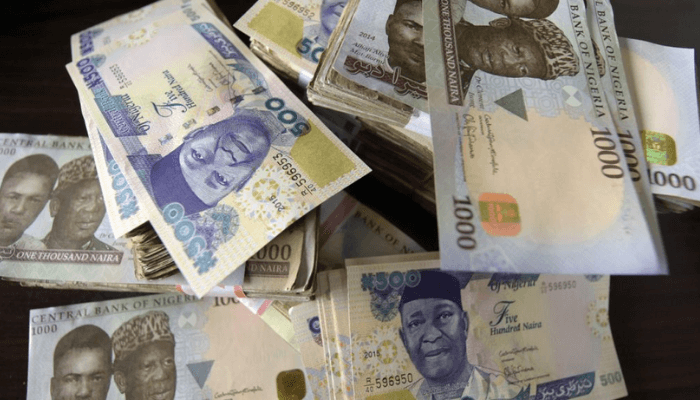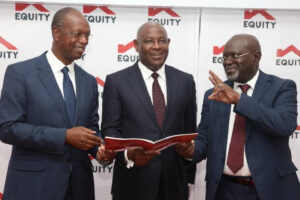
The naira’s stability is expected to persist over the medium term as speculative activities continue to decline, according to members of the Monetary Policy Committee (MPC) in their last meeting held in July 2025.
At the Nigerian Foreign Exchange Market (NFEM), the naira posted a strong performance against the US dollar last week, appreciating by 0.98 per cent week-on-week to close at N1,501.50 per dollar. The parallel market also strengthened by 0.33 per cent, settling at N1,535.00 per dollar. As a result, the official rate ended the week at N35.50 or 2.23 per cent premium to the parallel market rate.
Bala Moh’d Bello, one of the members of the MPC, said in his personal statement that the naira exchange rate has remained relatively stable, reflecting the benefits of tighter liquidity conditions, increased investor confidence, and the effective implementation of recent adjustments to the foreign exchange management framework.
He noted that speculative activities in the FX market have declined significantly, fostering greater transparency and promoting market-based price discovery. This stability, according to him, is expected to persist over the medium term, supported by rising external reserves, which stood at $40.11 billion as of July 18, 2025, equivalent to approximately 9.5 months of import cover.
Read also: Naira to remain steady as speculation declines
Aloysius Uche Ordu, another MPC member, said the naira’s appreciation and the narrowing of the gap between the official and Bureau de Change (BDC) rates reflected improved foreign exchange liquidity. He explained that remittances and foreign portfolio investments remained strong, contributing significantly to the boost in external reserves, which stood at $40.11 billion as of July 18, 2025, providing over nine months of import cover.
Bandele A. G. Amoo, also an MPC member, said in his personal statement that improved sector performance in the Nigerian economy has engendered positive investor sentiments. He observed that the naira continues to strengthen at the official window, while holiday dollar demand weighs on the sentiment of the parallel market. He explained that Nigeria’s balance of payments position remains stable and supportive of external sector stability, with portfolio inflows remaining high and recording positive net inflows at the end of June 2025.
According to him, the exchange rate has remained broadly stable with only minor fluctuations. He added that external reserves stood at $40.11 billion at mid-July 2025, up from $39.01 billion at mid-May 2025, driven mainly by improved crude oil production, stability in the FX market arising from the Central Bank’s ongoing policy reforms, and other measures including reduced import demand pressures due to the full deregulation of the downstream oil sector, reduced petroleum product importation, increased non-oil export inflows, and other subsisting CBN measures.
Emem Usoro, deputy governor of the Central Bank of Nigeria, said exchange rate movements have been notably encouraging, underpinned by higher FX turnover in the market, reforms aimed at enhancing price discovery and transparency, and growing investor confidence anchored by rising external reserves. She explained that the interplay between exchange rate stability, broad money growth, and disinflation has been particularly important in reducing pass-through effects, which in turn has reinforced inflation expectations among households and firms.
Read also: Inflation falls 20.12% on naira stability
Lamido Abubakar Yuguda, another member of the MPC, said efforts to attract more diaspora foreign exchange flows have been quite successful and should be strengthened further. He highlighted that the progressive growth of both gross and net foreign exchange reserves is providing the much-needed external buffer to anchor exchange rate stability.
Mustapha Akinkunmi, also an MPC member, said that despite global uncertainties such as trade tensions and geopolitical risks, the Nigerian naira has demonstrated notable resilience. He observed that exchange rate volatility, as measured by standard deviation, dropped significantly from N203 per dollar in 2024 to just N5.34 per dollar in the first half of 2025. At the same time, Nigeria’s gross external reserves grew by 9 per cent year-on-year, reaching $37.81 billion in June 2025 compared to $34.76 billion in June 2024, and further increased to $40.11 billion by July 18, 2025. He stressed that this provides a sufficient buffer to cover approximately 9.5 months of goods imports, thereby enhancing external sector stability.
Olayemi Cardoso, governor of the Central Bank of Nigeria, said the foreign exchange market continues to benefit from coordinated reforms that promote price discovery and improve liquidity, sustaining the stability of the market. He explained that capital inflows have shown a notable rebound following the slowdown recorded after tariff-induced global market volatility a few months ago. He, however, cautioned that investor sentiment remains sensitive to policy clarity and external shocks, even as reforms continue to strengthen confidence in the market.




